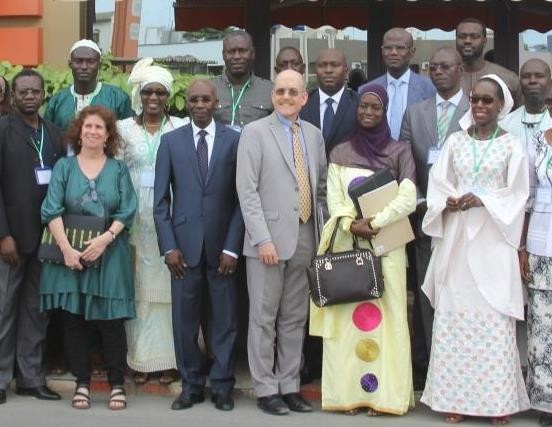
New initiative cuts across Feed the Future Portfolio
For Immediate Release
DAKAR – On July 11, the US Agency for International Development (USAID), the Research Program on Climate Change, Agriculture and Food Security of the Consortium of International Agricultural Research Centers (CCAFS), the National Agency Civil Aviation and Meteorology (ANACIM) and the Institute of Agricultural Research (ISRA) launched a new climate information services project to increase the resilience and productivity in Senegal.
The three-year, $3.5 million Project of Climate Information Services to Increase Resilience and Productivity in Senegal (USAID / CINSERE) will be implemented by the international Consortium in close collaboration with the aviation and agricultural research agencies. It will support Senegal’s efforts to address the negative impacts of climate change on the primary economic sectors of farming, livestock and fisheries.
“This project’s launch underscores the United States’ commitment to partnering with Senegal on its path to sustainable economic growth while adapting to the very real threat that climate change poses to this development,” U.S. Ambassador to Senegal James P. Zumwalt said at the event. “USAID/CINSERE will incorporate climate information services into our current activities to bolster agricultural sector growth and improve nutrition through President Obama’s Feed the Future initiative.”
Access to climate information will allow decision makers to anticipate and manage climate-related hazards, recover quickly from shocks, and create incentives to take on risks in the face of climate change. USAID/CINSERE will build information systems, design products and promote practices that will also strengthen local and national food security governance. It promises to benefit partners and beneficiaries representing close to 2.8 million people from 242,000 households spread over 150 communes.
“Improving services that anticipate climate change is an essential lever in the development of agriculture in Senegal, Zeynab Mbengue Wade, the Secretary General of the Ministry of Tourism and Air Transport said. “The new tools, practices, and approaches this project will bring will make Senegal more adaptive in the management of climate risks.”
Through Feed the Future, USAID supports agriculture, including crop and livestock production, and fishing with a goal of increasing productivity and strengthen the resilience of primary producers in Senegal. Projects supporting nutrition-led agriculture, cereal value chains, education and research in agriculture, and fisheries will all integrate climate information services into their activities through the CINSERE project.







Comment
Make a general inquiry or suggest an improvement.